Familiarity stalks you at every turn in Wuchang: Fallen Feathers, a competent, cool and pretty soulslike with a nice twist on death but few true surprises.
Comfort meals. Everyone has a go-to dish they eat when they just need a shot of nostalgia or the proverbial warm hug – a bowl of soup, say, or a nice big packet of crisps. Or a tough-as-nails action-RPG that’ll have you lobbing threatening obscenities at the fictional monsters on your screen in the late hours of the night. Slight tangent there – I promise this isn’t an intro to a recipe blog. It’s namely because playing Wuchang: Fallen Feathers feels a lot like, you guessed it, eating your favourite comfort food, if your comfort food happens to be strict soulslikes. It’s great, sure. It’s also rarely going to offer you any real amount of surprise.
Let’s rewind first. Wuchang: Fallen Feathers is a soulslike made by Chinese startup developer Leenzee, outside the famed offices of FromSoftware – of Dark Souls, Elden Ring, Sekiro, and Bloodborne fame – and by its very nature as a soulslike, there’s obviously some below-the-surface tension rumbling under. Wuchang is like Dark Souls, but how much like Dark Souls should it be? How much can it change and get away with? How much can it follow in the footsteps of the subgenre’s prognosticator without it feeling like a “we have a Dark Souls at home, honey” situation?
These are pretty much the same thoughts that ambushed my mind just as often as poisonous critters and maniacal enemies ambushed the titular Wuchang throughout my playthrough, because Fallen Feathers can be almost uncannily familiar even to anyone who’s sweated through only a couple games like Souls.
There’s stamina-based combat. There’s largely linear levels that loop over themselves as if the paths are trying to tie a shoelace made of grass and ground. There’s massive, sometimes massively difficult, sometimes optional, multi-phased boss fights. There’s shrines (bonfires) used to level up, heal, and revive most fallen baddies. There’s a twisted fantasy world in the throes of a near-apocalyptic event, this time set during the late Chinese Ming Dynasty, which does add cool visual twists to set it apart from the subgenre’s Berserk obsession.
Wuchang does mix up the formula in key ways that had me genuinely thrilled too. Wuchang – the amnesiac pirate you play as, not the game – suffers from a disease called Feathering that’s sweeping the entire empire. Others afflicted by it turn into mindless, violent, man-eating avian beasts or gruesome, fleshy monsters that look like their bodies have been popped inside out from their mouths.
Wuchang’s seemingly built different, though – she looks great with a couple feathers sticking out of her arm and she can accumulate a resource called Skyborn Might, used to cast spells and automatically buff weapon abilities. The flip side is that Skyborn Might only charges when Wuchang makes a really last-second dodge or hits certain combos, a risk-reward deal that made me constantly and consciously walk underneath an enemy’s tentacle-y appendage stretched to the sky, ready to come down, only to quickly escape a blow that would’ve otherwise crushed my health bar. Combat isn’t quite as fast as Bloodborne’s, but Skyborn Might adds a nice rhythm to fights that’s only compounded by a satisfying, shimmery sound effect that popped every time I pulled off a split-second sidestep. It often sounded quite musical as I glided away from attacks to the beat of an enemy’s swinging claws.
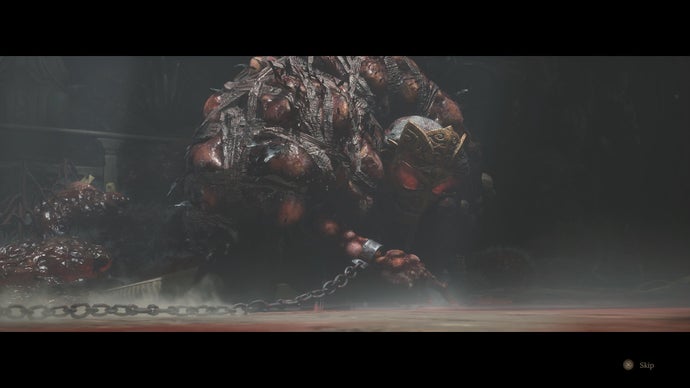
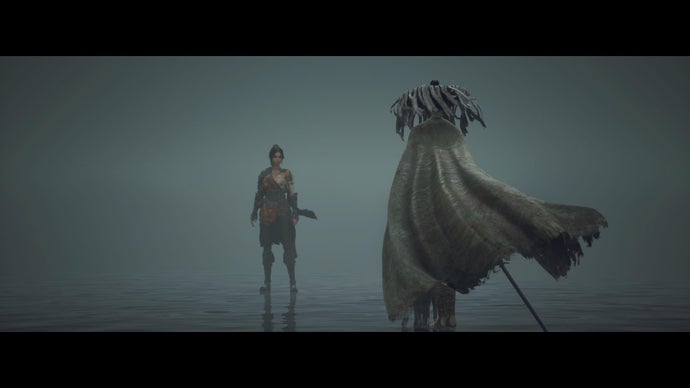
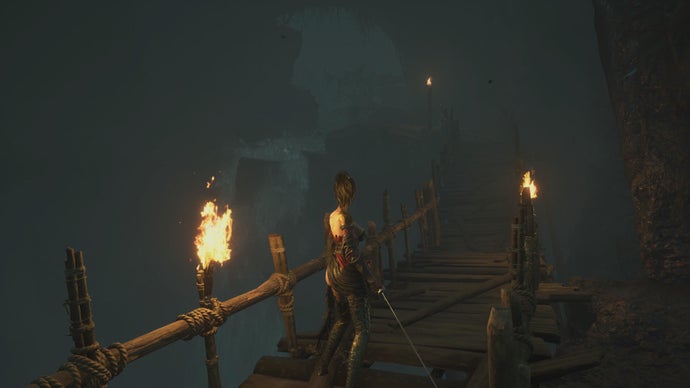
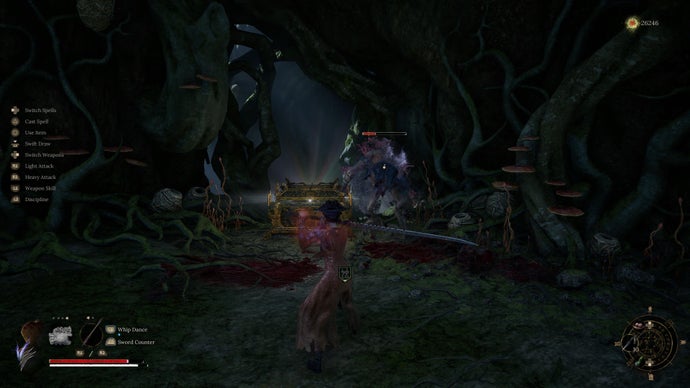
Wuchang’s a whole lot more capable of chaining attacks than your average, custom Dark Souls character as well. There are five weapons types – axes, dual blades, one-handed swords, spears, and my go-to, longswords – and you can equip two at any time. The nice twist is that, with a quick press of the analogue stick, Wuchang will seamlessly use her inactive weapon’s main ability, opening up opportunities for you to, say, unleash a slow, forceful strike with a heavy axe, quickly swap to a one-handed sword’s evade ability, and then make it rain down thunder with a spell. When I wasn’t getting a thorough butt-whooping myself, the game looked damn cool.
That said, while Wuchang definitely gave me the tools to pull off combos that looked like flashy, spectacle-driven fireworks, it often encouraged me to stick to what worked best: those longswords, which are more aggressively parry-focused than other weapon types.
Certain fights are absolutely reliant on being able to parry sword strikes – you see, a dodge, no matter how quick your thumbs are, won’t cut it when an enemy will just deliver a follow-up attack quicker than Wuchang can move her feet. Every weapon has some way of mitigating damage, but I found the easiest way to counter other sword-wielding foes is to just wield a big sword of your own.
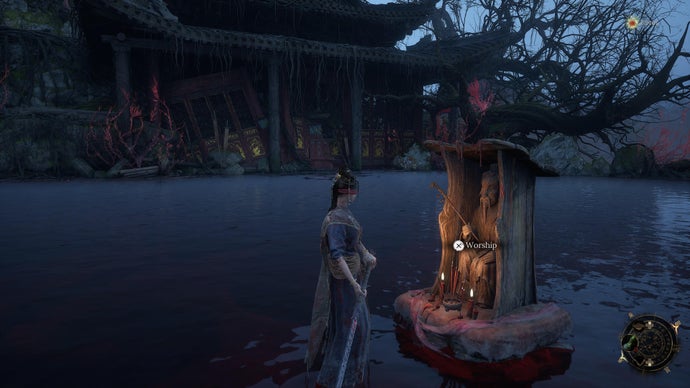
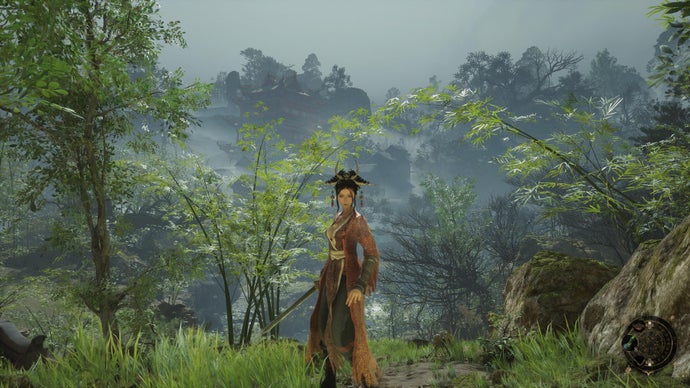
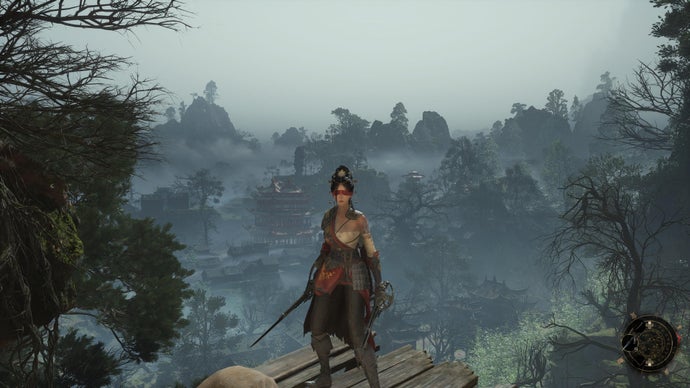
Parry-forward action games are all the rage these days. I don’t really remember the last one I played that didn’t want you to slap away your enemies’ attacks at the exact right frame. And when you’re not fighting big monsters who prefer to use their rotting nails or cursed beaks as a weapon, Wuchang is another parry-lover.
Dying is just as important as the killing part in these games, though, so Fallen Feathers’ other big reinvention comes from the falling. You still need to chase down the location of your corpse to retrieve any lost experience points, now Red Mercury, though you won’t drop it all at once. This time, how much you lose is dependent on a ‘Madness’ meter that goes up every time you fall. Once it reaches its max, you’ll dish out and take more damage, drop all your Red Mercury when you next die, and, more fiendishly, your inner demon, a light-footed doppelganger, will spawn and try to block you from what’s yours.
Like Skyborn Might, weighing up the boons and cons of going mad is delicious if you like living on the edge. There are ways to purposely up your madness without dying if you think it’s more strategic to do so, and being confronted with your seemingly evil mirrored self who’s blocking the Red Mercury you need for that next juicy ability is always a lean-into-your-seat thrill. If a subgenre’s going to be so intertwined with the dying of it all, I say more should experiment with the way you do so.
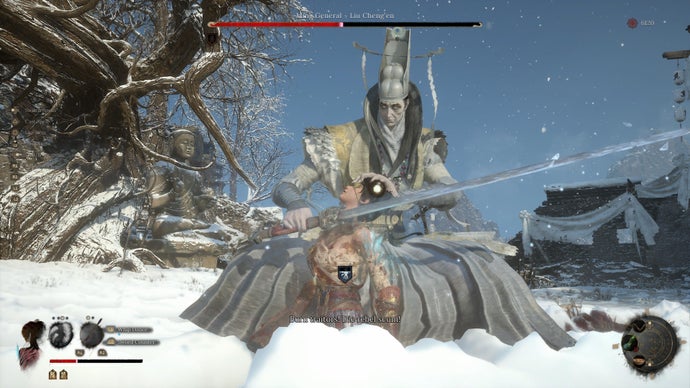
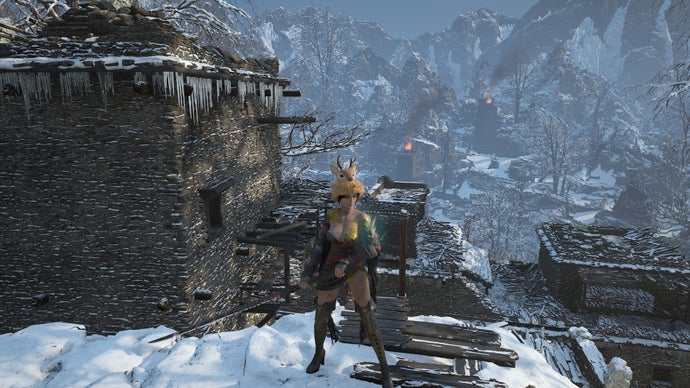
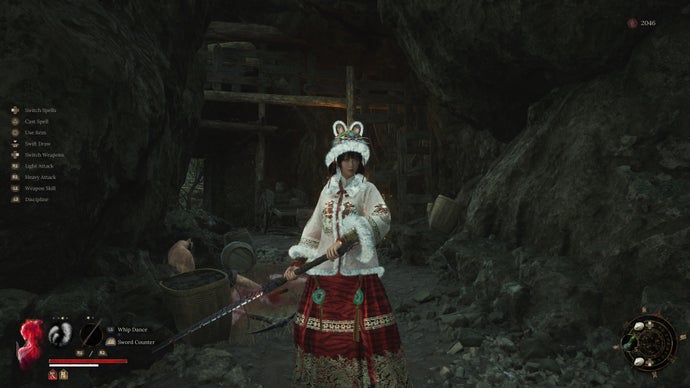
In a way, it’s also part of how Wuchang cements itself as a slightly more approachable soulslike. Dying isn’t always high stakes. You sometimes lose barely any Red Mercury. Plus, there are a good number of ways you can choose to cheese certain battles.
In fact, it took me around 36 hours to roll credits with only two optional bosses (that I know about) left for me to find on a second playthrough. I will say, though, that the gulf between Wuchang’s easiest and hardest moments is enormous. I beat a handful of bosses without dying once (apologies for the humble brag), while others practically reached out of the screen to bully my sweaty, broken ego at 2am in the morning.
Wild difficult spikes might have been jarring, but none ever felt sadistically tough a la Dark Souls and it’s well worth the feeling that, yes, I got gud. You know a boss fight’s hard when you’re throwing expletives as if someone’s eaten your leftover lunch from the fridge, and you know it was a fun time getting there when you’re punching the air in celebration as if the football’s on. (I don’t watch football but nothing else in my life makes me act more like a hooligan than soulslike bosses.)
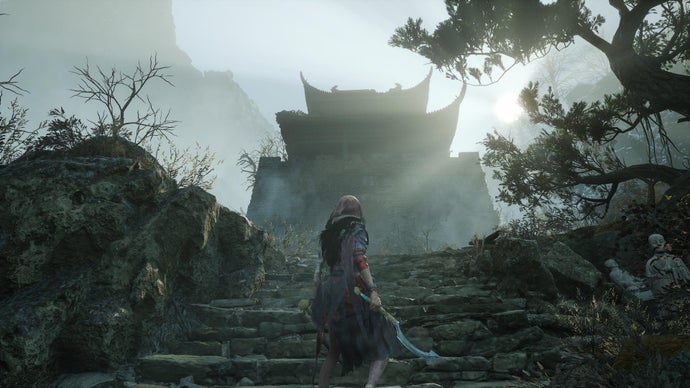
I’d also be doing a disservice if I didn’t shout out the game’s sickening fashion sense. Wuchang isn’t lacking for beautiful gowns, lush armour, fluffy hats and the heads of monsters to wear. I never thought RuPaul’s Drag Souls would be so damn fun, even if I could’ve done without the sometimes excessively jiggly, ahem, fan service, though a transmog system happily means you can dress to impress without skimping on stats.
Wuchang certainly has some high highs, especially when it leans into weirder, supernatural Chinese myths in the latter half. Still, it can’t really shake the feeling that it’s simply replaying the subgenre’s greatest hits.
Whether enemies are hiding behind the corners of a door, waiting to ambush you from behind as you step close to a ledge or pop out of a literal pot, a sense of been-there-done-that deja vu crept up after almost every single one of Wuchang’s fakeouts. (I say almost because there’s one brilliant jump scare I won’t spoil here, and I can’t believe FromSoft’s never been cruel enough to inflict it upon us.) That feeling manifests in other ways too, with underground boulders that suddenly knock you out or a Bone Whistle item that kind of mimics Elden Ring’s Spirit Summons during boss fights.
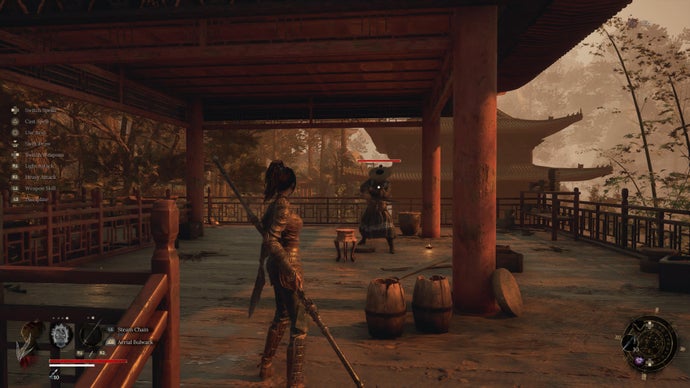
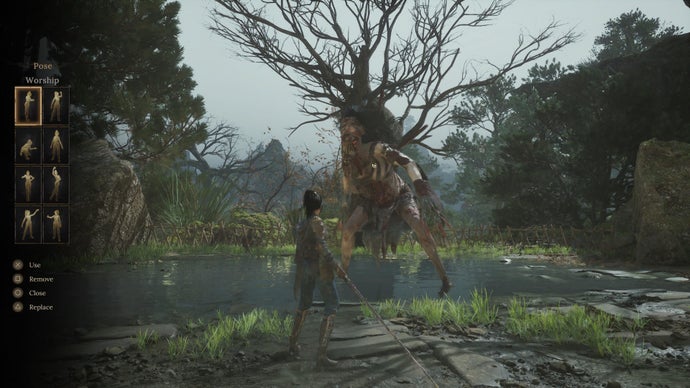
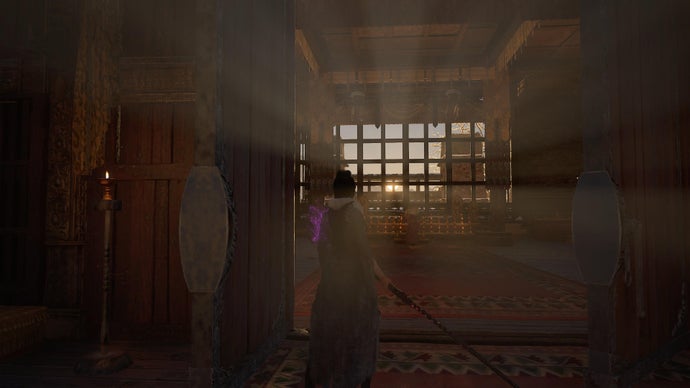
Dark Souls famously lets you jot down messages for other players to find, so you can either warn them of incoming traps or troll them into jumping off a cliff. Wuchang has no such online feature, but a handful of times, I stumbled upon notes left behind by the developers. “Take the leap,” one said, encouraging me to step off a ledge and find treasure below.
Those moments are emblematic of Wuchang as a whole, I think. Even when the game’s consciously making a choice to set itself apart from your usual Dark Souls’ cliches, it can’t help but remind you that it’s still intimately tied to and uncannily like another game you’ve already played.
Not to downplay Wuchang’s contributions to the formula. Its dazzling landmarks, more frantic combat, and inspired dying are fun novelties – they’re just not game-changing ones. Sekiro’s uncompromising romance with parries and Bloodborne’s aggressive speed meaningfully reframe the house that Demon Souls built, for example, rather than feeling like a retread. And despite its commitment to slick costumes, nearly everywhere else in Wuchang: Fallen Feathers moreso feels like it’s trying to fit into Dark Souls’ clothes so snuggly, it ends up disappearing into its shadow.
Hence, the comfort food. Wuchang is familiar. The food’s good, but I’ve already had this meal before. You know what to expect, you know what ingredients you’re going to taste, you might even be able to predict the order in which they kick in, and you probably won’t get sucker punched by an unexpected spice. How much you can tolerate Wuchang: Fallen Feather’s familiarity probably depends on how many times you can eat a plate of your favorite comfort food before you build up a craving for something more.
A copy of Wuchang: Fallen Feathers was provided for review by 505 Games.
